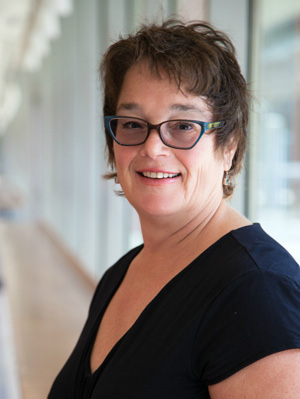The University of California, Santa Cruz, has established a new master’s (M.S.) degree program in Natural Language Processing (NLP), offered from the UCSC Silicon Valley Campus in Santa Clara. This innovative professional degree program will give students a strong background in the advanced computational technologies used to process and analyze the natural language that humans speak and write.
The one-year (11-month) program, administered by the Department of Computer Science and Engineering in the Baskin School of Engineering at UC Santa Cruz, is designed to meet the growing need for people with expertise in the rapidly growing field of natural language processing. The initial cohort of students will start in fall 2020, and the deadline for applications is February 3.
Natural language processing is the foundation for voice-controlled digital assistants like Amazon's Alexa and Apple’s Siri, as well as machine translation, internet search engines, and a growing number of other applications.
Natural language processing focuses on the development of computer programs that can understand, generate, and learn from human language. It provides algorithms, methods, and tools for analyzing both text and speech, and it provides key capabilities for many areas of artificial intelligence (AI).
“Conversational AI is huge these days,” said Marilyn Walker, a professor of computer science and engineering and director of the new NLP Program. “There is also a lot of work in the area of extracting knowledge from text. All the big tech companies, like Apple, Google, and Microsoft, are working in these areas.”
Job opportunities in natural language processing can be found in industry, government agencies, and nonprofit organizations, she said.
"By staying at the forefront of emerging disciplines, we can help our graduates forge meaningful careers and explore new ways to positively impact the world," said Alexander Wolf, dean of the Baskin School of Engineering. "The Natural Language Processing master's degree is a good example of how Baskin Engineering creates new interdisciplinary academic programs that are relevant for today and for tomorrow."
The NLP master’s program will involve UCSC faculty in computer science and engineering, psychology, and linguistics, including leading experts in natural language processing. Students will receive practical training in areas such as data science, core aspects of linguistic theory, and specific applications of natural language processing.
Students will also work in teams to complete a substantial capstone project to develop hands-on, practical skills. The program will take advantage of its proximity to Silicon Valley to connect students with industry mentors for their capstone projects.
“The technology in this field is so rich and complex, traditional master’s programs that aren’t focused on natural language processing would have a hard time giving students all the background they need to work in this field,” Walker said. “Our aim is provide an intensive education in just one year that will give students the depth and breadth needed to work in the field of natural language processing.”
More information about the M.S. in Natural Language Processing at UC Santa Cruz is available online at grad.soe.ucsc.edu/nlp.



